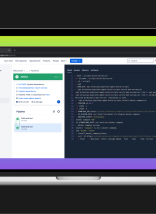AngularJS was once one of the most popular structural frameworks for dynamic web applications. The beauty of this tool was that it let you use HTML as your template language and build applications without the code otherwise needed. Developers had come to love its ease of use and the speed with which they could offer complete application builds.
Another popular open-source tool, Zend Framework, also made it easy to produce and manage PHP-based websites for a long time by creating object-oriented web applications using PHP 5 scripting language.
Both did an incredible job for years – but as with everything, time changes things and there are better, more efficient ways to get application building done.
The world of software development is changing. Creating applications that are far more scalable, and secure and that meet the constantly changing demands of the market requires change.
In 2014, Zend Framework 2 stopped being maintained and after pushing back its support end date due to the pandemic, AngularJS support support officially ended in January 2022.
Angular, now replaces AngularJS and is a typescript-based rebuild of the AngularJS framework. As a more modern web framework, it includes a number of improvements. The latest version, Angular 15, was developed by Google and released on November 16, 2022, and supports the latest TypeScript 4.8 release.
Zend Framework has now been renamed Laminas Project and is under an open governance model managed by the Linux Foundation. It includes a number of professional PHP-based packages for web applications in PHP 7. Laravel is another popular and widely supported PHP framework.
With AngularJS and Zend Framework 2 now both obsolete and new tools coming out all the time, it’s time to start thinking about how you’ll move your applications into the next generation. Not convinced? Here are 3 important reasons to move on to new application tools.
Security Issues
Even if your website and applications are still working as they should, it’s important to not ignore the security risks involved with outdated, no longer supported tools. Vulnerabilities in web applications are serious and costly risks. They can allow hackers to go in and manipulate the source code of an application, gain unauthorized access to private data and even interfere with the normal operation of a website or web application. Migrating to a modern web framework is the best defense against these types of vulnerabilities as most come loaded with techniques to protect against common breach types.
Slow Loading
Performance is a critical factor in the success of a business. People expect instant results when they use an application, and anything less is intolerable to them. This is a major problem for businesses because slow-loading applications lead to lost revenues, unhappy customers, and other problems. When your applications are not up to date, you will have trouble keeping up with performance requirements. One way to combat slow loading times is to make sure that you have the most recent version of the PHP or web application framework. Updates happen periodically and should always be maintained.
Scalability Limitations
It’s important to have an appropriate technology stack when creating a scalable web application. A good framework is one of the key factors in ensuring scalability, but it must be updated and maintained regularly if you want to avoid common problems.
The best way to move forward with your application development strategy is by making sure your team has all the information they need to make smart decisions. That’s where we come in! We have worked with hundreds of companies just like yours to help them make those big decisions for their software development future.
We’d love to help you get started on your journey toward building applications that are future-ready. Reach out today and let us know how we can help!







